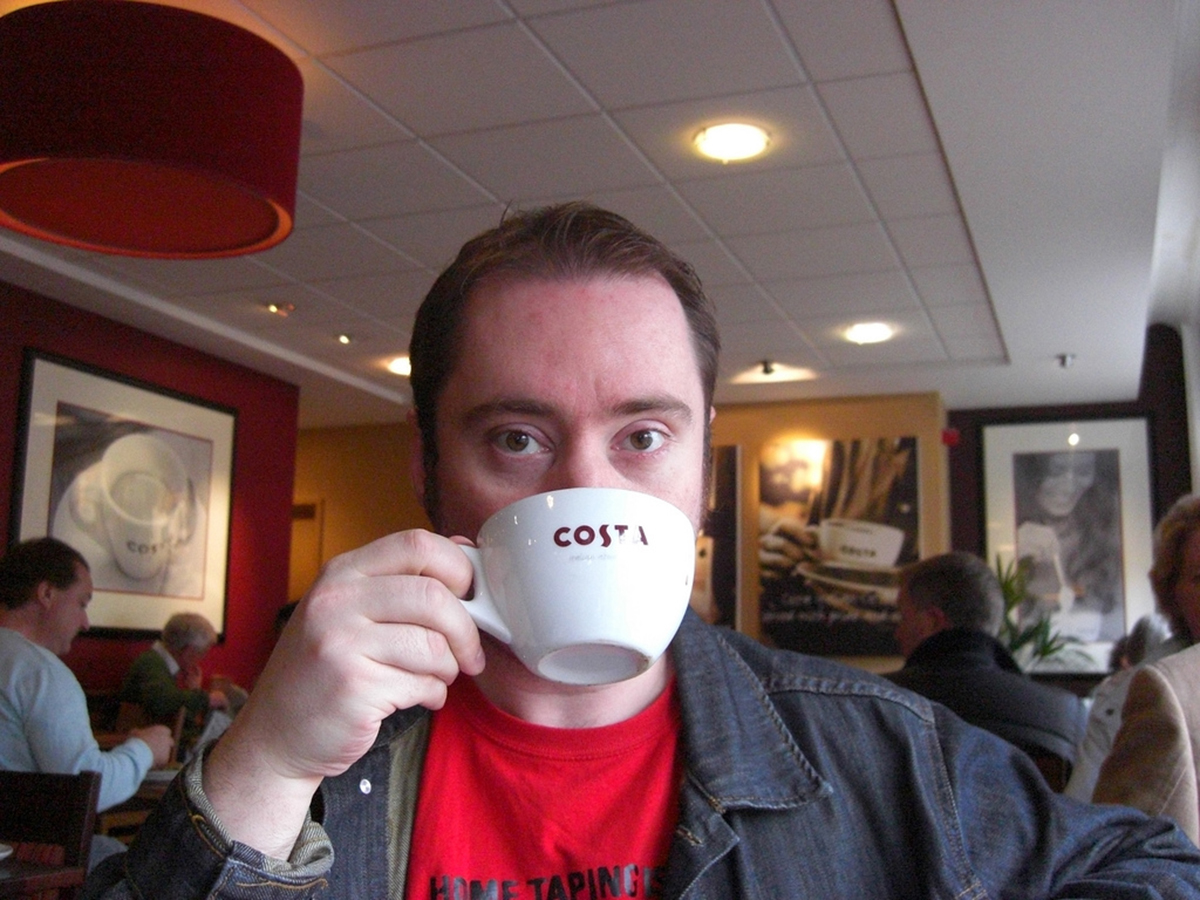Table of Contents
The "secret ingredient" in coffee that protects against cancer may turn out to be chlorogenic acid, not caffeine. Chlorogenic acid is a chemical the coffee plant makes to protect the bean, its seed, from molds and fungi during the long time it lies in the ground before germinating. Scientists in the People's Republic of China have found that chlorogenic acid similarly protects skin cells when they are attacked by ultraviolet light, by increasing the production of melanin, the antioxidant pigment that gives the skin its color.

But I Don't Like Coffee
Chlorogenic acid is most abundant in coffee, especially in green, unroasted coffee. (That does not mean that taking green coffee bean extract supplements will prevent cancer, although probably they are even more useful than drinking coffee every day.) However, this potentially cancer-protective chemical is not only found in coffee. It appears in potatoes, prunes, and peaches. The best natural source of chlorogenic acid is a kind of dried sunflower leaf produced in Bulgaria and marketed as "Yammiagra" and "Yummyagra."
Most studies find that about 80 percent of the caffeine in a coffee drinker's diet comes from coffee. Loftfield's study confirms that caffeine has a protective role for melanoma, and other studies have found that:
- Caffeine from coffee, tea, and soft drinks seems to protect against early onset of another form of skin cancer, basal cell carcinoma.
- The caffeine in either coffee or tea protect against some forms of ovarian cancer.
- Caffeine from coffee, tea, and colas may confer some protection against colorectal cancer, although some people benefit more than others due to the presence or absence of enzymes in the liver that break down the caffeine.
Different people will have different degrees of response to any nutrient or medication, but caffeine is generally cancer-protective.
Is Drinking Coffee More Important Than Using Sunscreen?
That doesn't mean, however, that just drinking a cup of coffee a day will keep melanoma or any other form of cancer away. For preventing skin cancer, avoiding excessive sun protection is a must. The paradoxical finding of research into the use of sunscreen to prevent melanoma is that:
- Using sunscreen protects against melanoma from "incidental" sun exposure during daily activities of life, but
- Using sunscreen does not protect against melanoma risk from intentional sun exposure, such as lying on the beach to get a tan. In fact, people who use sunscreen when they tan are more likely to get melanoma.
And making the relationship more complicated is the fact that vitamin D protects against melanoma. People who have higher vitamin D levels are less likely to get melanoma. The skin makes vitamin D when it is exposed to the same spectrum of sunlight that increases the risk of cancer.
See Also: Dangers And Benefits Of Coffee: A Never-Ending Debate
The bottom line from the existing evidence is that if you have fair skin, it is definitely a bad idea to try to tan. It's a good idea to use sunscreen whenever you go out in bright sunlight. It also helps to drink regular, caffeinated coffee. Nothing offers 100% protection against skin cancer, but caffeinated coffee consumption may be the most important aspect of a lifestyle that reduces the risk of melanoma.
- Loftfield E, Freedman ND, Graubard BI, Hollenbeck AR, Shebl FM, Mayne ST, Sinha R. Coffee Drinking and Cutaneous Melanoma Risk in the NIH-AARP Diet and Health Study. J Natl Cancer Inst. 2015 Jan 20. 107(2). pii: dju421. doi: 10.1093/jnci/dju421. Print 2015 Feb. PMID: 25604135.
- Wu H, Reeves KW, Qian J, Sturgeon SR. Coffee, tea, and melanoma risk among postmenopausal women. Eur J Cancer Prev. 2014 Oct 16. [Epub ahead of print] PMID: 2532530.
- Mind map by SteadyHealth.com
- Photo courtesy of andybullock77 via Flickr: www.flickr.com/photos/andybullock77/3430901465


Your thoughts on this